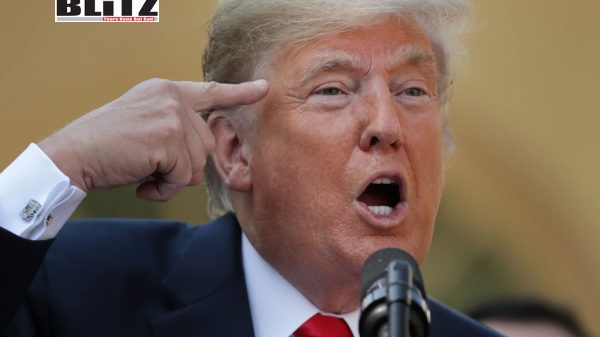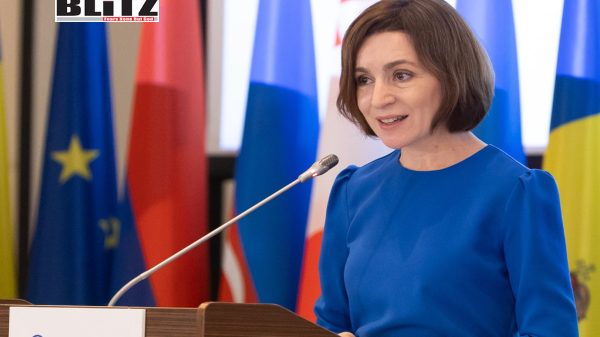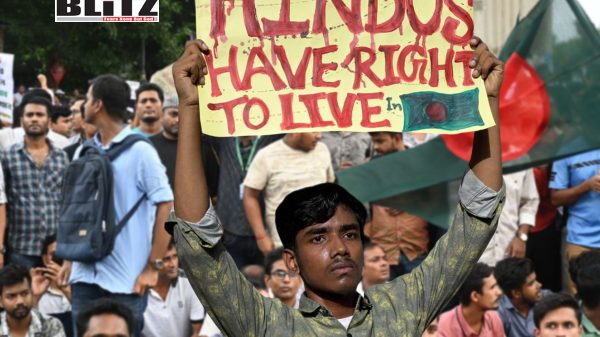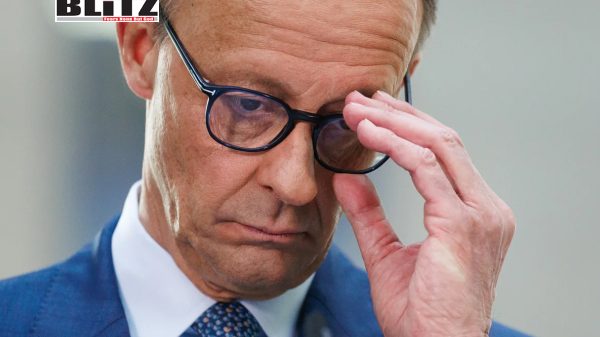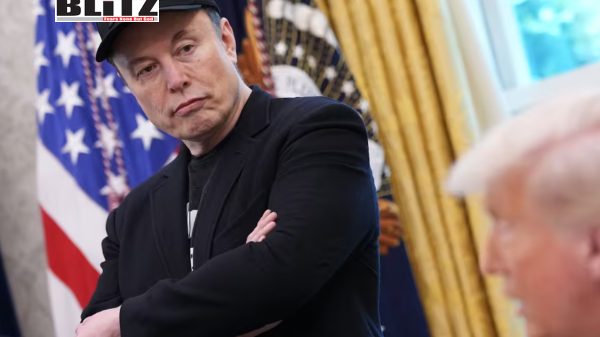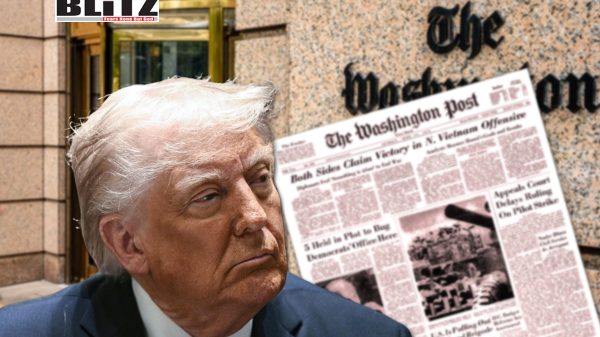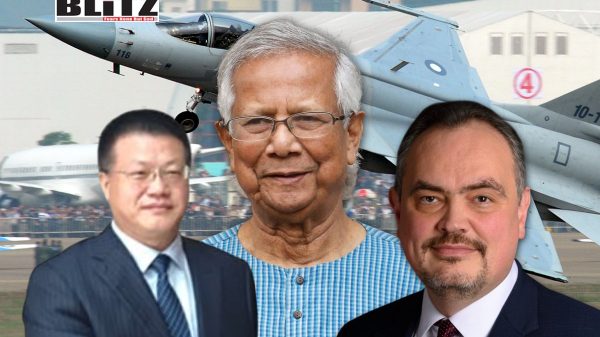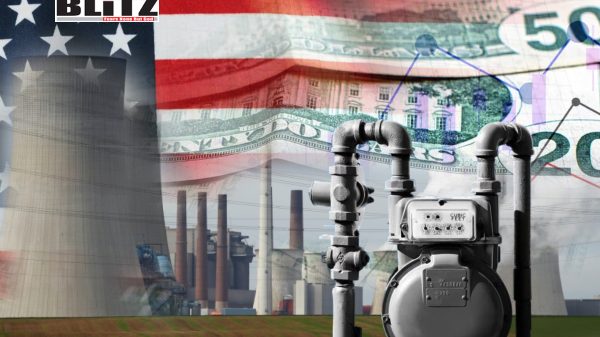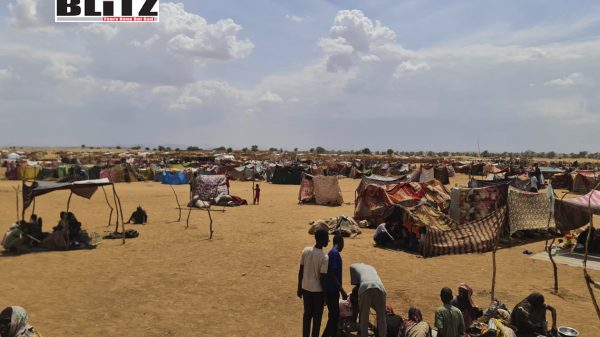BRICS emerges as global platform to counter western sanctions
- Update Time : Tuesday, October 22, 2024
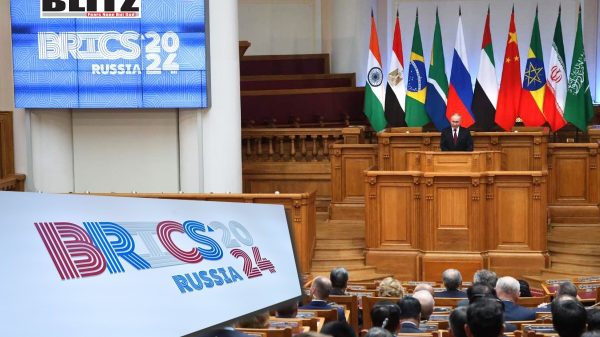
The BRICS group (Brazil, Russia, India, China, and South Africa), originally an economic coalition, has rapidly evolved into a significant platform for geopolitical and financial collaboration, providing an alternative to Western-dominated structures. In a world where Western influence has long shaped the global narrative, financial systems, and sanctions regimes, BRICS is positioning itself as a formidable counterweight, especially for nations looking to assert their independence from Western hegemony. This sentiment was underscored at the BRICS Business Forum in Moscow on October 17-18, where leaders from various sectors gathered to discuss the future of the organization.
Nonkululeko Patricia Mantula, founder and CEO of Global South Queens (GSQ) Media House, articulated the growing importance of BRICS in providing a platform that counters Western sanctions and offers nations a pathway to sovereignty. Mantula pointed out how Western sanctions, which have often targeted countries such as Russia and Iran, reveal biases in international bodies like the IMF and World Bank. These sanctions, she argued, disproportionately punish certain nations while protecting the interests of others. According to Mantula, “BRICS has become a solution,” presenting an alternative that allows countries to bypass Western financial restrictions and seek their own path.
Nompumelelo Mpofu, CEO of South Africa’s SOC Limited, echoed Mantula’s sentiments, highlighting that the BRICS framework promotes national sovereignty. In her words, “We are here, we arrived here, with or without the sanctions.” The organization’s appeal lies in its ability to allow nations to prioritize their own national interests, free from the pressures exerted by Western powers through sanctions or political influence.
The BRICS bloc has grown significantly since its inception in 2006, when it was founded by Brazil, Russia, India, and China. South Africa joined in 2011, followed by Ethiopia, Egypt, Iran, and the United Arab Emirates in January 2024. Saudi Arabia has also been invited to join and is currently considering ratifying its membership. Additionally, over 30 nations, including NATO member Türkiye, have applied to join BRICS, further cementing its role as a global force that transcends the economic sphere.
The upcoming BRICS summit in Kazan, Russia, is expected to be a turning point in global geopolitics. With 24 heads of state in attendance, including major figures such as China’s President Xi Jinping, this summit signifies more than just a gathering of economic partners. It reflects the slow but inevitable erosion of the Western-led world order and the emergence of a multipolar world. What was once a unipolar system dominated by the U.S. and its allies is now increasingly being challenged by BRICS and other rising powers.
One of the most striking aspects of this summit is the presence of Antonio Guterres, Secretary-General of the United Nations. His participation suggests a recognition of BRICS’ growing influence and raises important questions about the future of global governance. Traditionally aligned with Western powers, the UN’s presence at the BRICS summit could signal a shift towards a more inclusive global order that accommodates both Western and non-Western perspectives.
At its core, BRICS seeks to challenge the dominance of Western institutions such as the IMF, World Bank, and SWIFT payment system. These institutions, created in the aftermath of World War II under the Bretton Woods system, have long favored Western countries, often at the expense of developing nations. For example, IMF loans typically come with strict austerity measures that have hurt economic growth in countries like Argentina and Greece, while Western countries continue to hold the majority of voting power in these bodies.
The BRICS nations, representing over 45 percent of the world’s population and about a quarter of the global GDP, are attempting to provide an alternative. By establishing their own financial institutions, such as the BRICS New Development Bank, they offer loans without the stringent conditions imposed by the IMF. This enables developing nations to access much-needed funding for infrastructure projects and social programs without being forced into detrimental economic policies.
Moreover, BRICS aims to reduce dependency on the US dollar by promoting trade in local currencies. This not only undermines the West’s ability to impose sanctions by freezing dollar-denominated assets but also strengthens economic ties among BRICS nations and their partners. The discussion of creating a common BRICS currency, though still in its early stages, underscores the group’s ambition to reshape the global financial system.
As BRICS expands its influence, Western countries are being forced to reassess their strategies. While the US and its allies have relied heavily on sanctions as a tool of foreign policy, the effectiveness of these measures is increasingly being called into question. Russia, for example, has weathered sanctions since its annexation of Crimea in 2014 and its invasion of Ukraine in 2022. Through its membership in BRICS, Russia has been able to maintain economic ties with key partners like China and India, reducing the impact of Western sanctions.
Similarly, Iran, which has been under severe US sanctions for decades, has found in BRICS a platform to circumvent these restrictions. The inclusion of countries like Ethiopia and Egypt in the BRICS bloc, both of which have struggled with Western-dominated financial systems, further highlights the growing appeal of this alternative alliance.
The West’s response has been mixed. While some European countries have expressed a willingness to engage with BRICS, others remain wary of its growing power. NATO’s member Türkiye applying to join BRICS signals a potential shift in the Western alliance’s cohesion, as countries seek to balance their traditional relationships with the West against new opportunities presented by BRICS.
The Kazan summit could also mark the beginning of a new form of multilateralism. The current global order, built on post-World War II institutions, is struggling to address contemporary challenges such as climate change, inequality, and the rise of authoritarianism. Many countries in the Global South feel marginalized within these institutions, which often prioritize the interests of the Global North.
BRICS, by contrast, offers a more inclusive model of cooperation. With its emphasis on South-South dialogue and partnerships, the bloc provides a platform for developing countries to voice their concerns and pursue their interests without interference from Western powers. This new approach to multilateralism, if successful, could lead to a significant rebalancing of global power.
The BRICS group is no longer just an economic coalition; it is a geopolitical force with the potential to reshape the global order. By providing an alternative to Western sanctions and financial systems, BRICS allows countries to assert their sovereignty and pursue their own development paths. The upcoming summit in Kazan represents a pivotal moment in this journey, as BRICS continues to expand its membership and influence. As the world moves towards a multipolar system, BRICS is positioning itself as a key player in the future of international relations.




